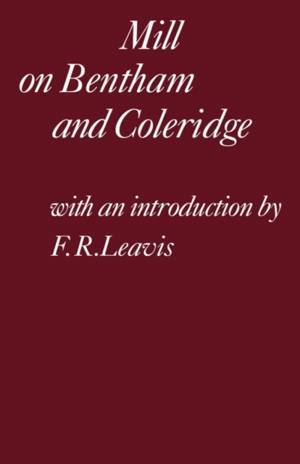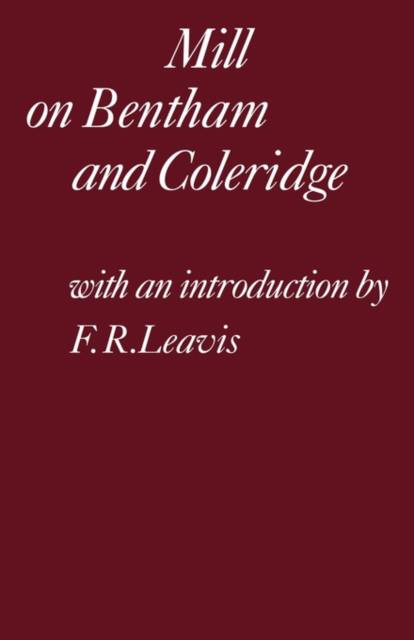
- Afhalen na 1 uur in een winkel met voorraad
- Gratis thuislevering in België vanaf € 30
- Ruim aanbod met 7 miljoen producten
- Afhalen na 1 uur in een winkel met voorraad
- Gratis thuislevering in België vanaf € 30
- Ruim aanbod met 7 miljoen producten
Zoeken
€ 74,95
+ 149 punten
Omschrijving
John Stuart Mill described Bentham and Coleridge as 'the two great seminal minds' of early nineteenth-century England. Coleridge, who asserted the primacy of the transcendent imagination, was in a obvious sense the direct opposite of Bentham, the resolute proponent of Utilitarianism but Mill, while recognizing the separateness of their creeds, appreciated both and saw both as necessary to the intellectual vigour of the nation. Mill's major essays on Bentham and Coleridge were first published in The Westminster Review, in 1838 and 1840 respectively. In this substantial introduction to them here F.R. Leavis argues that they are essential documents for an understanding of Victorian culture he traces their influence on the thinking of Dickens, George Eliot and Matthew Arnold, and examines their significance for contemporary principles of liberal education.
Specificaties
Betrokkenen
- Auteur(s):
- Uitgeverij:
Inhoud
- Aantal bladzijden:
- 176
- Taal:
- Engels
Eigenschappen
- Productcode (EAN):
- 9780521299176
- Verschijningsdatum:
- 30/06/1980
- Uitvoering:
- Paperback
- Formaat:
- Trade paperback (VS)
- Afmetingen:
- 140 mm x 216 mm
- Gewicht:
- 231 g

Alleen bij Standaard Boekhandel
+ 149 punten op je klantenkaart van Standaard Boekhandel
Beoordelingen
We publiceren alleen reviews die voldoen aan de voorwaarden voor reviews. Bekijk onze voorwaarden voor reviews.











